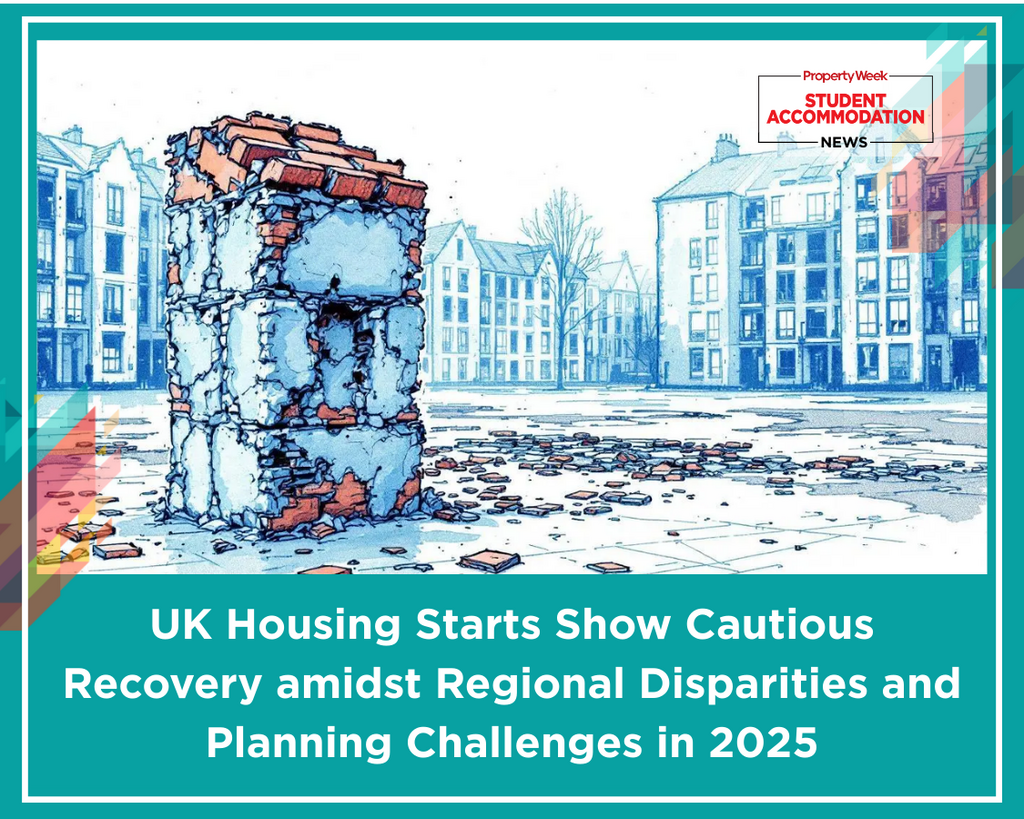
UK Housing Starts Show Cautious Recovery amidst Regional Disparities and Planning Challenges in 2025
Residential construction activity in the UK during July 2025 indicates tentative signs of recovery with notable regional variations and ongoing planning and labour market challenges, despite optimistic forecasts supported by policy investment and rising house prices.
Residential construction activity in the UK in July 2025 showed signs of a cautiously optimistic recovery, although some sectors and regions faced notable challenges. Project starts in the housing sector increased by 24% year-on-year, marking strong underlying growth despite a slight 1% decline compared with the previous quarter. Smaller projects valued under £100 million performed particularly well, rising 10% from the preceding quarter and standing 25% higher than a year ago. However, main contract awards and detailed planning approvals in the residential sector weakened significantly, with contract awards down 38% and planning approvals falling 47% compared to 2024, indicating some strain in the pipeline ahead.
Private housing remained the dominant component, representing 64% of project starts and exhibiting a substantial 72% year-on-year increase to £8.335 billion. Conversely, private apartment projects fell 12%, though student accommodation starts doubled compared to the prior year, reflecting shifting demand patterns. Regionally, most areas saw growth in project starts, led by Yorkshire & the Humber, which surged 138% to £1.731 billion, and Scotland, rising 149% to £1.646 billion. The Southeast was the largest region in terms of residential starts at £1.865 billion despite a 14% year-on-year decline, while London’s total industrial starts fell 16%. For planning approvals, London remained the most active region at a 20% share, despite a sharp 55% slump year-on-year.
The broader construction industry painted a mixed picture around mid-2025. According to the Glenigan July 2025 Construction Review, project starts rose 6% quarter-on-quarter overall, though main contract awards dropped by 24% year-on-year, and planning approvals declined by 22% in the three months to June. This points to an uneven recovery trajectory, with smaller-scale projects under £100 million increasing 49%, while activity on major projects exceeding £100 million decreased. Parallel data from the Office for National Statistics noted a 0.6% fall in total construction output in May 2025, driven mainly by a 2.1% decline in repair and maintenance work, though new construction itself rose by 0.6%. The ONS also remarked that total construction output had grown modestly by 1.2% in the three months to May 2025.
Despite these challenges, market fundamentals show encouraging signs. Both Nationwide and Halifax reported rising house prices in July, supported by newly implemented mortgage affordability rules that have stimulated market activity. The recent UK Spending Review has pledged a £39 million investment to advance social housing delivery towards the target of 1.5 million new homes, which could invigorate the sector further. Industry forecasts remain optimistic, with Glenigan projecting moderate rises in private and social housing through the end of 2025 and into 2026, buoyed by improving economic conditions and consumer confidence.
Regionally, growth continues to be uneven but largely positive. The West Midlands and Yorkshire & the Humber stand out with strong quarterly and annual project start increases, while regions such as the Southwest and London experienced declines in both starts and planning approvals. The West Midlands posted a remarkable 40% quarterly increase in project starts and 79% year-on-year, reflecting an active development pipeline. However, labour shortages pose an ongoing risk to sustained growth, with a significant proportion of construction firms struggling to recruit, and an estimated need for over 250,000 additional workers by 2028. The government has committed £600 million in skills funding to mitigate this, aiming to train 60,000 workers, though progress on this initiative appears slow.
The housing construction sector's performance in July 2025 followed a period of volatility earlier in the year, where a stamp duty increase had temporarily boosted activity in early months, followed by a subsequent cooling in demand and house price corrections. As a result, the immediate outlook remains cautious, with dampened main contract awards and planning approvals suggesting a careful market awaiting further stabilisation. Still, the promise of renewed investment and policy support provides grounds for optimism that the sector will strengthen through late 2025 and beyond.

